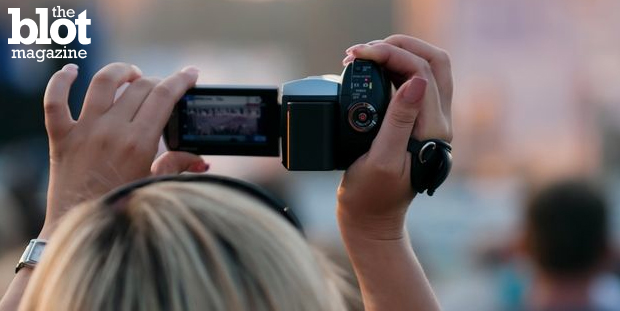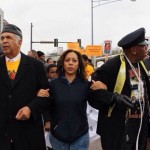A Texas lawmaker says he will tone down portions of a bill he introduced that would have created a buffer zone between citizen documentarians and law enforcement officials during police encounters and investigations.
The original text of Republican state Rep. Jason Villalba’s house resolution made it a misdemeanor offense for members of the public to film within 25 feet of a law enforcement official. That buffer zone was increased to 100 feet if the person filming law enforcement was carrying a weapon under the state’s open carry law.
The provision made exemptions for accredited members of the news media as defined by law, including journalists who work for newspapers, magazine, television and radio outlets.
Following widespread negative reaction to his bill, Villalba now says he will work to re-write portions of the bill, but will not withdraw it completely.
Speaking on WFAA-TV’s “Inside Texas Politics” on Sunday, Villalba said he would shrink the buffer zone between citizens and police from 25 feet to 10 feet, and from 100 feet to 25 feet if the person is openly carrying a weapon.
“We do want to make sure our police officers are kept accountable,” Villalba said, adding that he felt a 10-foot buffer was more than adequate to capture both video and audio of police officers using a smartphone.
Villalba said his original idea came from law enforcement groups who expressed concern over a new batch of what he called “independent bloggers who are not interested in journalism or keeping law enforcement accountable.”
“They’re interested in agitating and keeping the police from being able to do their jobs,” Villalba told journalist Jason Whitely. “Hop on YouTube, put up Cop Watcher, you’ll find 50 videos right away of — not only people recording — but people harassing the police during the time they’re trying to conduct (their investigations).”
For all the changes and concessions he’s willing to make, the one thing Villalba says is off the table is pulling the bill entirely.
“This is a reasonable request (from law enforcement),” Villalba said. “They’re asking for some assistance. I want to provide them that assistance.”
During his interview with WFAA, Villalba didn’t say which law enforcement groups contacted him that ultimately inspired him to write the bill. But a source with knowledge of the lawmaker’s meeting told TheBlot Magazine one such group was the Dallas Police Officer’s Association (POA). The Dallas POA did not return an e-mail seeking comment by press time.
While the law enforcement community appears to have thrown its support behind Villalba’s proposal, it’s unclear just how much support he has from other lawmakers. Even if the proposal did become law, it would almost certainly face legal challenges.
Critics have argued that the First Circuit court case Glik v. Cunniffe upheld a citizen’s right to record the police in a public place when it found Simon Glik was unlawfully detained by Boston officers for recording a police encounter and subsequent arrest from 10 feet away. Glik was originally charged with violating Massachusetts’ wiretapping law, a charge that a municipal court later dismissed after ruling that the arrest was actually precipitated by police officers who were unhappy about being recorded.
In his WFAA interview, Villalba attempted to tap the decision in Glik by noting that the ruling upheld a citizen’s right to film the police subject to “reasonable limitations of time, place and manner.” According to Villalba, his proposed law would place a reasonable limitation as to place without trumping a citizen’s constitutionally protected right to record the police.
“We don’t think we’re infringing upon people’s civil liberties,” Villalba said. “We do believe we’re giving the police what they need to operate and keep people safe.”
But the portion of Glik that deals with reasonable restrictions — the part that Villalba is using to make his case — is based entirely on a different case, Smith v. Cumming. In that case, an appellate court did not define what reasonable restrictions were but did find that citizens had a First Amendment right “to gather information about what public officials do on public property, and specifically, a right to record matters of public interest.”
According to a guide sheet by the Digital Media Law Project, the constitutional right to record the police as determined in Glik, Smith and other case law “would override any state or federal laws that would otherwise prohibit such recording.”
A representative from Villalba’s office did not return a request for comment.
Matthew Keys is a contributing journalist for TheBlot Magazine.






